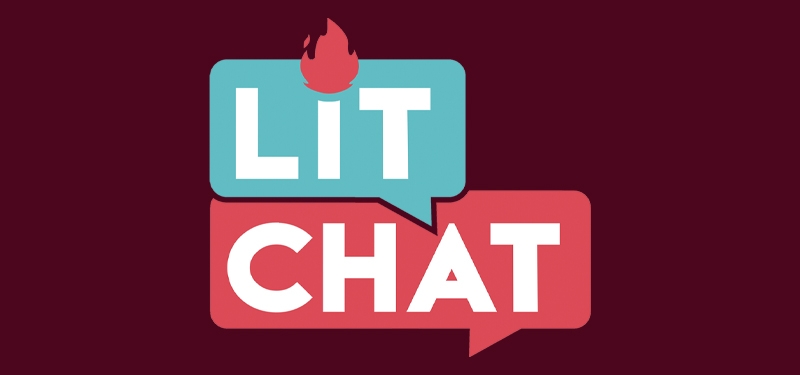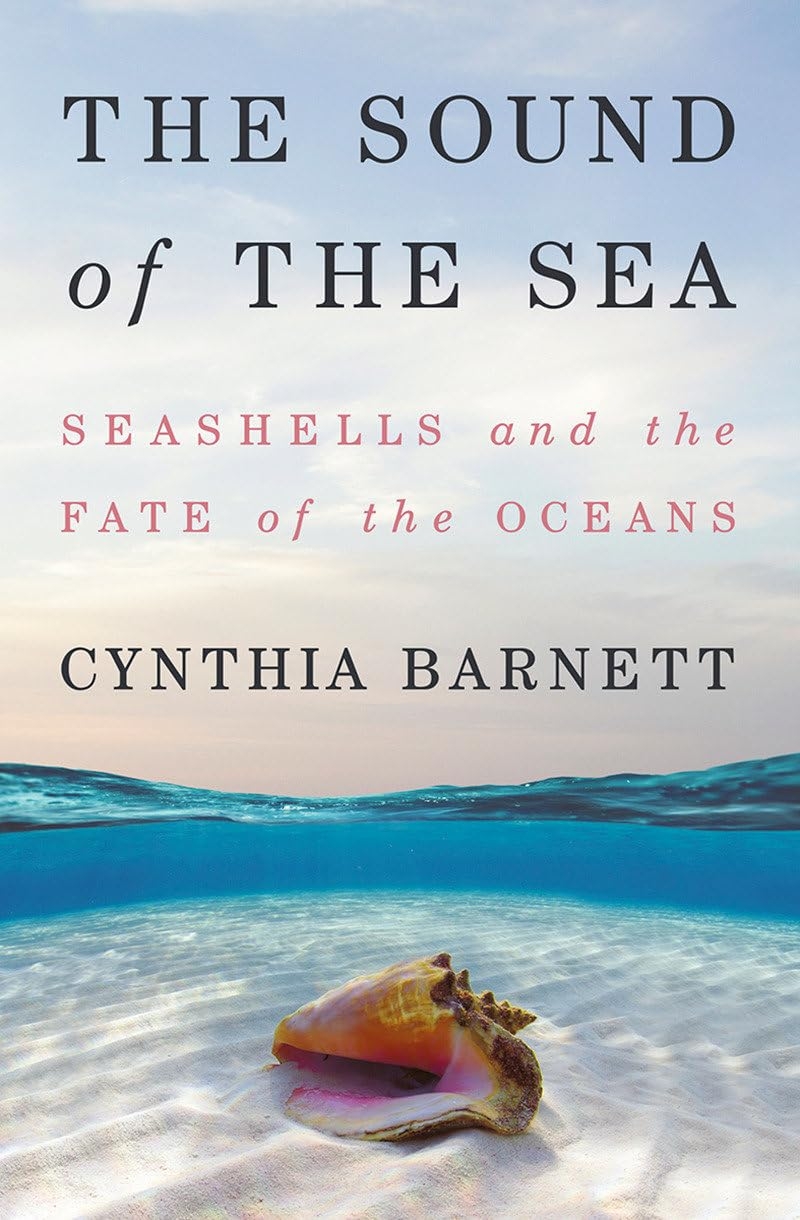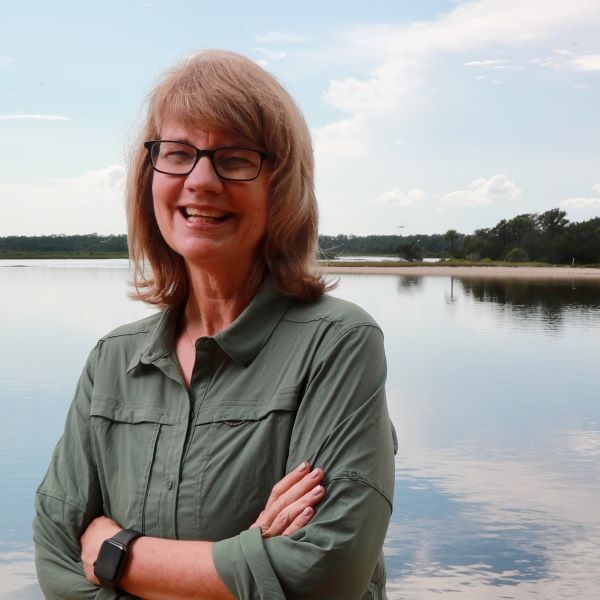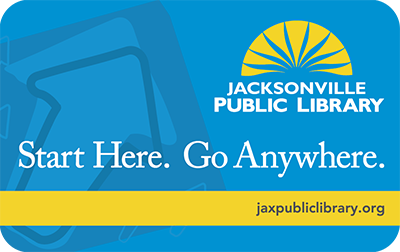#

# What Seashells Can Teach Us About Ourselves and Our World

Seashells have been the most coveted and collected of nature’s creations since the dawn of humanity. They were money before coins, jewelry before gems, art before canvas. In The Sound of the Sea: Seashells and the Fate of the Oceans, acclaimed environmental author Cynthia Barnett blends cultural history and science to trace our long love affair with seashells and the hidden lives of the mollusks that make them.
“The seashell might seem a decidedly small foundation for a book,” The New York Times wrote, “but Barnett’s account remarkably spirals out, appropriately, to become a much larger story about the sea, about global history and about environmental crises and preservation.”
Attend the Author Interview & Book Signing
Catch the interview between Cynthia Barnett and St. Johns Riverkeeper, Lisa Rinaman, from 1 to 2 p.m. on Saturday, May 10, at Main Library. A book signing will follow with books available for sale on site from The BookMark. This program is in partnership with the St. Johns Riverkeeper.

Cynthia Barnett was a longtime newspaper and magazine staff writer before diving full time into water. Her Knight-Wallace Fellowship researching freshwater history and science at the University of Michigan led to her first book, Mirage: Florida and the Vanishing Water of the Eastern U.S., later named by the Tampa Bay Times as one of the top 10 books that every Floridian should read. Her latest book, The Sound of the Sea, was named one of the best science books of the year by NPR’s Science Friday.
She is the director of Climate and Environment Reporting Initiatives at the University of Florida’s College of Journalism and Communications and continues to write and speak on water and climate change, with stories and essays in The New York Times, Los Angeles Times, Wall Street Journal, The Atlantic, National Geographic, Politico, Sierra, Salon, Orion, Discover and other publications. Her many journalism awards include a national Sigma Delta Chi prize for investigative magazine reporting. As a keynote speaker and guest lecturer, she shares stories from her books and themes from her teaching including water and climate ethics; environmental storytelling; the power of listening; and environmental leadership.
Interviewer Lisa Rinaman serves as the chief advocate and public’s voice for the St. Johns River. She utilizes 20 years of policy experience to hold those harming the river accountable and to identify and champion solutions to protect and restore the river, its tributaries, and its springs.
She works with government entities, businesses, community leaders and citizens to resolve problems that impact the river’s health; and communicating with the media and the public to educate and raise awareness about important river-related issues.
Lisa was instrumental in the creation of Waterkeepers Florida, a formal collaboration of 15 Waterkeeper Alliance programs united across the state. She is also one of the founding members of the Reunite the Rivers Coalition working to reunite Silver Springs, the Ocklawaha and the St. Johns as the Great Florida Riverway. She enjoys Florida’s waters and natural wonders with her husband, Mark, and two boys, Mark Jr. and August.
# Reading Recommendations
Check out Cynthia’s works from the library!
Did you know that all of our Lit Chat authors' books count toward your Jax Stacks Reading Challenge completion? Find out what authors we're hosting this month and join in on the fun!
Cynthia Recommends:
- Pair James Weldon Johnson's poem "Ode to Florida" with a visit to the St. Johns River. Or can just bring your lunch and the poem to James Weldon Johnson Park!
- Pair John Muir's "The Cedar Keys" chapter from his book 1,000 Mile Walk to the Gulf with a visit to the islands of the Cedar Keys National Wildlife Refuge. You can kayak to Atsena Otie Key and see remnants of the original town of Cedar Key before a hurricane wiped it out in 1896, causing the citizens to move onto the mainland.
- Pair Marjorie Kinnan Rawlings' The Yearling with a visit to Silver Glen Springs in the Ocala National Forest. You can walk the Spring Boils Trail to see the bubbling-sand boils Rawlings describes in the novel.
- Pair Lauren Groff's essay in The Wilder Heart of Florida, editors Jack E. Davis and Leslie Poole, with a trip to Paynes Prairie State Preserve south of Gainesville.
The Library Recommends:
- The Brilliant Abyss : Exploring the Majestic Hidden Life Of the Deep Ocean and the Looming Threat That Imperils It, by Helen Scales
- The Source : How Rivers Made America and America Remade its Rivers, by Martin Doyle
- Heart of Dryness : How the Last Bushmen Can Help Us Endure the Coming Age of Permanent Drought, by James G Workman
- Whose Water Is It? : the Unquenchable Thirst Of a Water-Hungry World
- Dry Spring : the Coming Water Crisis of North America, by Chris Wood
- Whose Water Is It, Anyway?, by Maude Barlow
- Blue Covenant, by Maude Barlow
- This Changes Everything : Capitalism vs. the Climate, by Naomi Klein
- Running Out : In Search of Water On the High Plains, by Lucas Bessire
- Water : a Biography, by Guilia Boccaletti
- The weather makers : How Man Is Changing the Climate and What It Means for Life on Earth, by Tim F. Flannery
# You May Also Like...
 Catch Lit Chat Interviews you might have missed (or want to revisit) by checking out this YouTube playlist. You can also subscribe to our Completely Booked podcast (using the podcasting app of your choice) for audio-only replays of our Lit Chat Interviews.
Catch Lit Chat Interviews you might have missed (or want to revisit) by checking out this YouTube playlist. You can also subscribe to our Completely Booked podcast (using the podcasting app of your choice) for audio-only replays of our Lit Chat Interviews.
Please note: Some author interviews are only available for a limited time.
Be the first to know about Lit Chat author events, writing workshops, and more!

